Study. Why does this small word produce so much procrastination and paralysis? Most children and teens don't know how to study effectively. Let's examine common pitfalls and how we can tweak them to study more effectively.
Jump to:
- STUDY PROBLEM 1: CRAMMING BEFORE EXAMS
- STUDY PROBLEM 2: SELDOM REVIEWING NOTES
- STUDY PROBLEM 3: REREADING, ONLY
- STUDY PROBLEM 4: USING ONLY ONE STUDY TOOL
- STUDY PROBLEM 5: IGNORING TEXTBOOK QUESTIONS
- STUDY PROBLEM 6: SKIMMING THE SURFACE
- STUDY PROBLEM 7: LETTING FRUSTRATION WIN
- STUDY PROBLEM 8: STUDYING ALONE
How to Get Organized and Study Effectively
STUDY PROBLEM 1: CRAMMING BEFORE EXAMS
Students should space out study periods to avoid pulling all-nighters. We can better recall information and concepts if we learn them in multiple, spread-out sessions. A few 30-minute study sessions over several days instead of a three-hour crash course the night before is more effective in the long run. Picture an overstuffed suitcase - things are bound to fall out the moment you move it.
STUDY PROBLEM 2: SELDOM REVIEWING NOTES
Many children and teens with ADHD make the mistake of reading through their notes once and thinking they're ready for the exam. Repetition, however, is vital. For effective studying, rinse and repeat-a lot.
STUDY PROBLEM 3: REREADING, ONLY
Rereading doesn't make information stick. Students can adopt a faulty "I know this!" mentality when rereading because the material is familiar. They stop processing their reading and no longer deepen their understanding of the material.
The antidote to this is rewriting notes. The physical act of writing helps students absorb information deeper than reading the same material twice. To take it up a notch, rewrite in a different form than the original notes (draw a diagram, create an outline, develop a Q and A - anything that changes your notes into a different format). Organizing the material differently will also help students determine whether they truly understand it.
STUDY PROBLEM 4: USING ONLY ONE STUDY TOOL
Unfortunately, creating a single study guide won't be enough. Mixing different study tools (affiliate) will optimize learning by keeping the material fresh, fun, and engaging.
Some fun study ideas to try:
• Write a song as a way to learn a language
• Draw cartoon pictures to memorize the ancient gods
• Make up a dance routine (affiliate) to learn the periodic table
STUDY PROBLEM 5: IGNORING TEXTBOOK QUESTIONS
The questions at the end of each textbook chapter are study gold! But only if you use them effectively.
Prior to reading a chapter, students should write out each question on a separate sheet of paper (leaving space in between), and answer the questions as they make their way through the chapter. This technique helps my students overcome procrastination every time! And a tip within a tip: Don't forget about the questions or highlighted text in each chapter.
General rule: If something is bolded, italicized, or highlighted, the reader needs to know it.
STUDY PROBLEM 6: SKIMMING THE SURFACE
Many students think that knowing some of the material means they know it all and avoid further studying. But not knowing things makes us uncomfortable, and our lack of understanding results in our test scores.
Studying material in the order it was first presented can lead to a false sense of security. To encourage learning and go beyond the surface, mix it all up! Start in the middle. Jump around. Break up the order.
If the material requires chronological study, try reviewing it backward. I learned this from a professor during my college years. We tend to spend more time at the beginning of the textbook chapter, the professor's PowerPoint, or our notes. By starting at the end and working backward, we ensure we've given everything equal time.
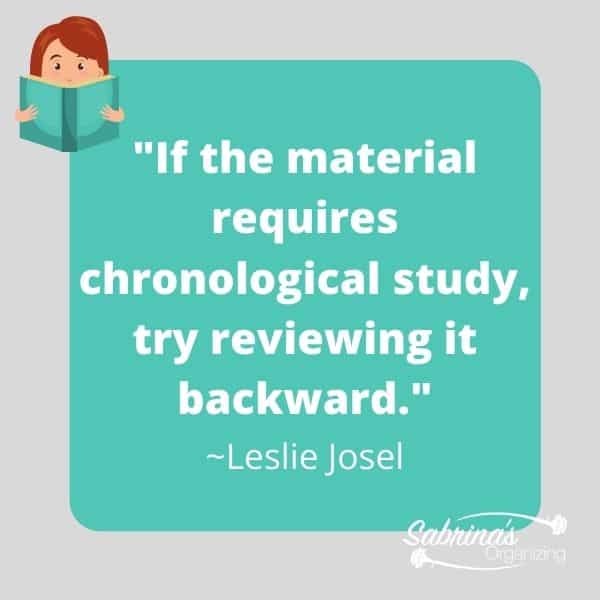
STUDY PROBLEM 7: LETTING FRUSTRATION WIN
In high school and in college, most students will take classes in subjects that don't come easy to them. To succeed in these classes, students will have to put in more effort than other students, work hard without giving up, get help, and tap into all resources. No easy task.
To avoid a self-defeating mindset, students should try flipping upside down the narratives in their heads. Instead of saying, "I don't get this," they should ask themselves, "How can I get this?" Or swap out "I don't know" with "What do I know?" And my favorite one? Changing "This won't work" to "What have I done previously that has worked?"
STUDY PROBLEM 8: STUDYING ALONE
There's no better procrastination buster than studying with others. It's one of the most effective study tools (affiliate) out there because it's loaded with all the good stuff.
Students are teaching each other, not just memorizing. They're writing on smart boards, quizzing each other, and making up mock test questions - fun stuff that puts activity into learning. And to teach is to know.
Students are talking out loud - it slows them down, helps them process, and forces them to say things in a way that makes sense to them.
Students are drawing from each other's expertise. Someone might be a math god, while another is a computer (affiliate) science whiz. This is the time to take advantage of each other's knowledge. It keeps students accountable and, therefore, keeps procrastination at bay. Getting up at 8 a.m. on a Saturday to study alone, for example, maybe tough. But if the study group is meeting at that time, your child will be on time.

Thank you, Leslie, for these terrific ways to do effective studying.
Leslie Josel is an academic/life coach for teens and college students with ADHD and the principal of Order Out of Chaos, a virtual, online community providing hands-on education and coaching to parents and their students so all children - both mainstream and with learning issues - can develop the necessary skills they need to experience success in learning and in life.
She is the creator of the award-winning Academic Planner: A Tool for Time Management®, a planner that helps students develop and master time management skills, and the award-winning author of three books, including the recently published, How to Do it Now Because It's Not Going Away: An Expert Guide to Getting Stuff Done (Lerner Publishing, 2020).
Need more tips to help with a successful school year?
Visit these other posts below.
7 POWERFUL TIPS TO HELP ADHD STUDENTS SUCCEED IN COLLEGE
HOW TO ORGANIZE AN ELEMENTARY SCHOOL STUDENT
5 MIDDLE SCHOOL STUDENT ORGANIZING ESSENTIALS TO HELP THEM SUCCEED
THE REASONS I LOVE ORDER OUT OF CHAOS® ACADEMIC PLANNER
9 TIPS FOR A SUCCESSFUL ONLINE COLLEGE CLASS EXPERIENCE




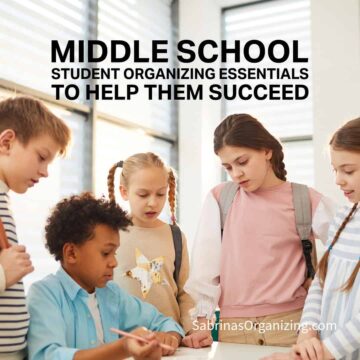
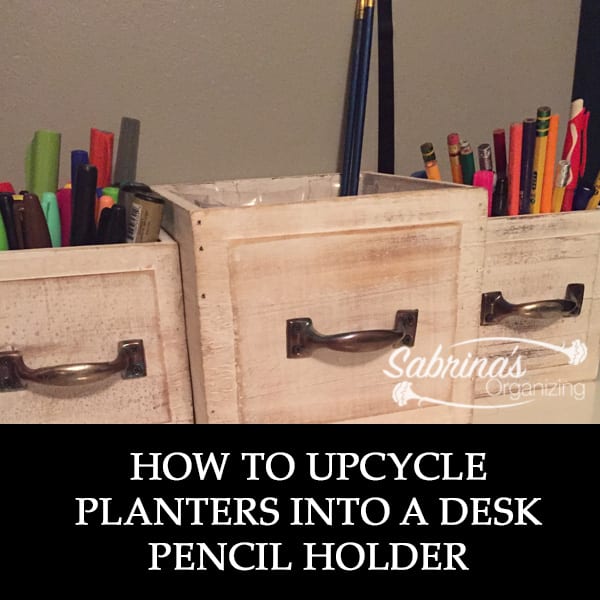
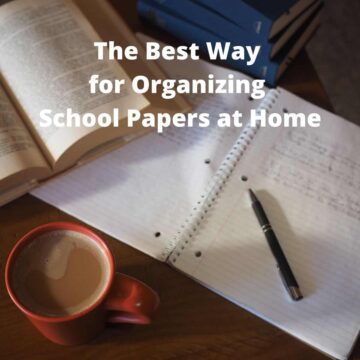
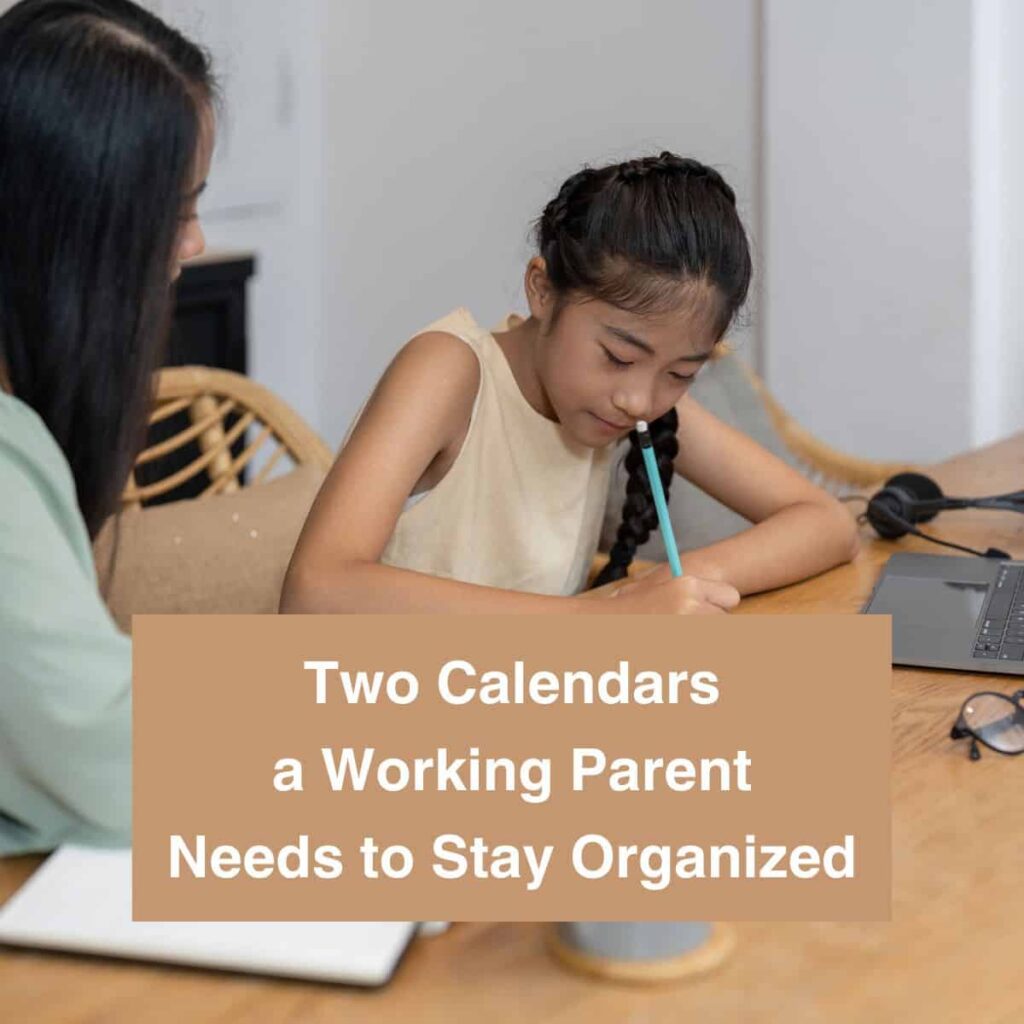
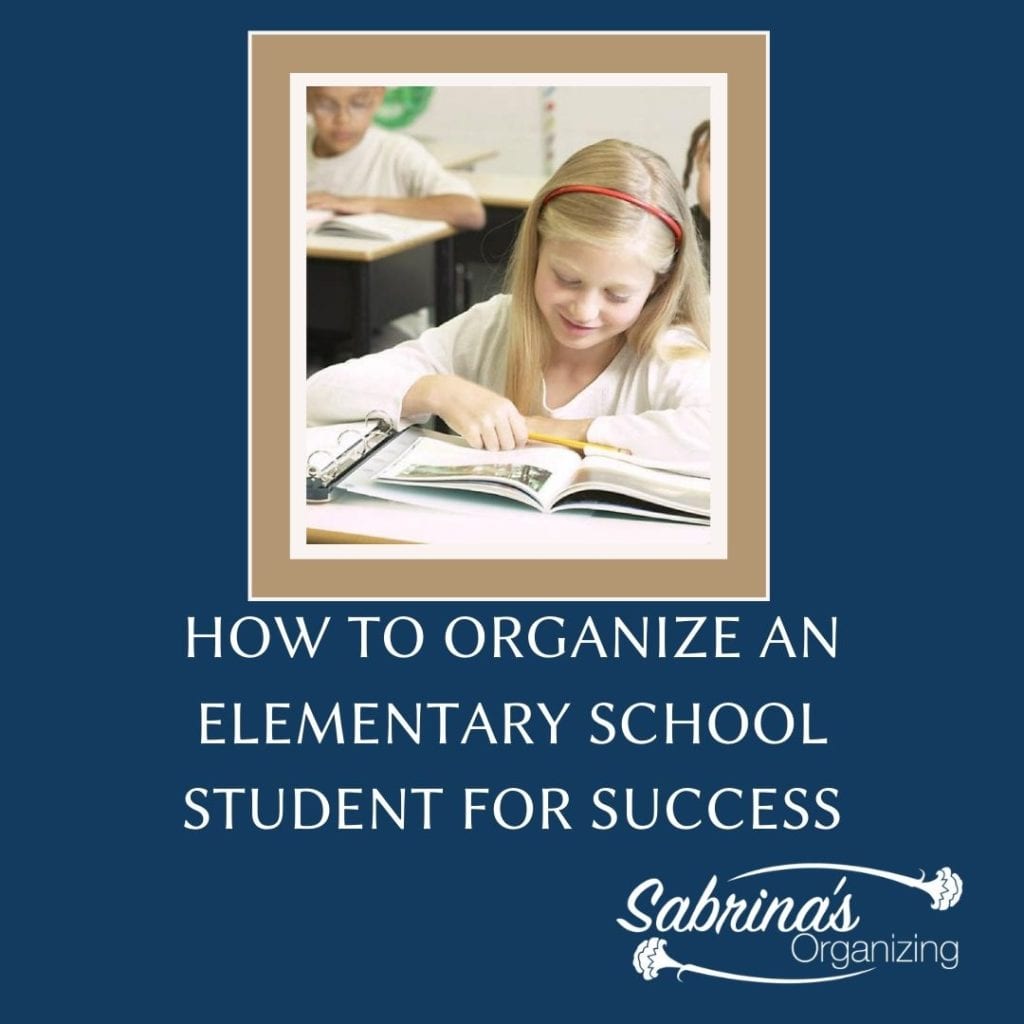
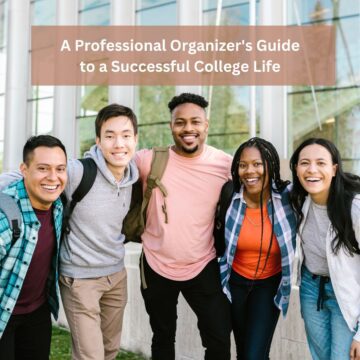
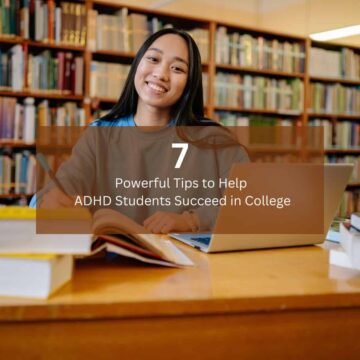
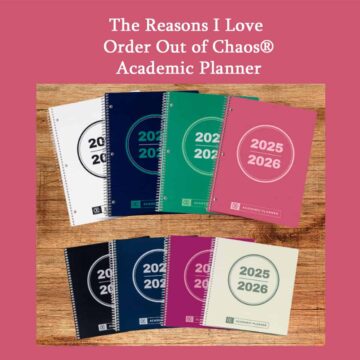
Julie Bestry says
So glad you brought Leslie in, Sabrina!
Leslie's tips (almost) make me wish I were back in school. I loved school (except math), but so much of this advice would have made things easier and eliminated stress when I was in middle and high school. By college, I learned to combine these efforts and still remember studying for an unrelentingly hard test by grabbing a friend and coming up with a song-and-dance routine that pegged each fact or process to a word or movement. Too bad there was no YouTube in those days, or I could make money off my embarrassing study routine! 😉
Janet Schiesl says
Leslie is the best. I really like the suggestion of studying backward through a chapter and also studying with other people. I think those would have been helpful to me when I was a student.
Lucy Kelly says
Such smart tips! As a singer, I've seen the habit of working on the first part of a piece much more than the middle and the end, that's definitely a pitfall to watch out for when studying anything. I'd also add that it helps immensely if you can keep your mind on why you're studying in the first place. If you can connect the knowledge to a specific goal or tie the studying to an immediate reward, you'll be more motivated to use these excellent tips and strategies.
Sheri Steed says
As someone who had two children with attention deficits, I really appreciate this post. I wish I'd seen it ten years ago! Wonderful tips and insights. Kids always think they are on top of things, but they rarely know how to study effectively.
Seana Turner says
Leslie is the expert, and these are all terrific! I used to recopy my notes when I got home from school. It was kind of fun, because I could do it while watching TV and pull out my markers and make each page look unique. Little did I realize that I was cementing the material in my mind simply by rewriting it. I remember it also helped me realize when I didn't understand something, or even couldn't read my own writing, and then I could make a note to ask for clarification the next day.
Linda Samuels says
I'm a huge fan of Leslie's and she offered such great wisdom. Each piece is gold, but the one that stood out the most was #7. Our mindset has an enormous influence over what we will or won't do...or more importantly what we think we can or can't do. So shifting the narrative to supportive, uplifting language can be valuable when studying and in all aspects of life.
I have to admit that reading about studying for exams made me feel a bit anxious. I know I did it and was good at it. But at this point, learning comes in a different form and there are no tests.
Ronni Eisenberg says
This is about as thorough as it gets. I really love the tips. There are a few that stand out to me. The ones that I can relate to, not just for myself but when I used to help my kids with their schoolwork.
I agree that rewriting notes is helpful. Just the act of writing it down for many helps to recall the information. I also love mnemonic devices. Such as a song or a dance to the information. I recall years ago there was a song ( The Skeleton Dance) about the bones in the body that were connected to others. I heard it on TV and I thought it was brilliant. I can still remember the tune.